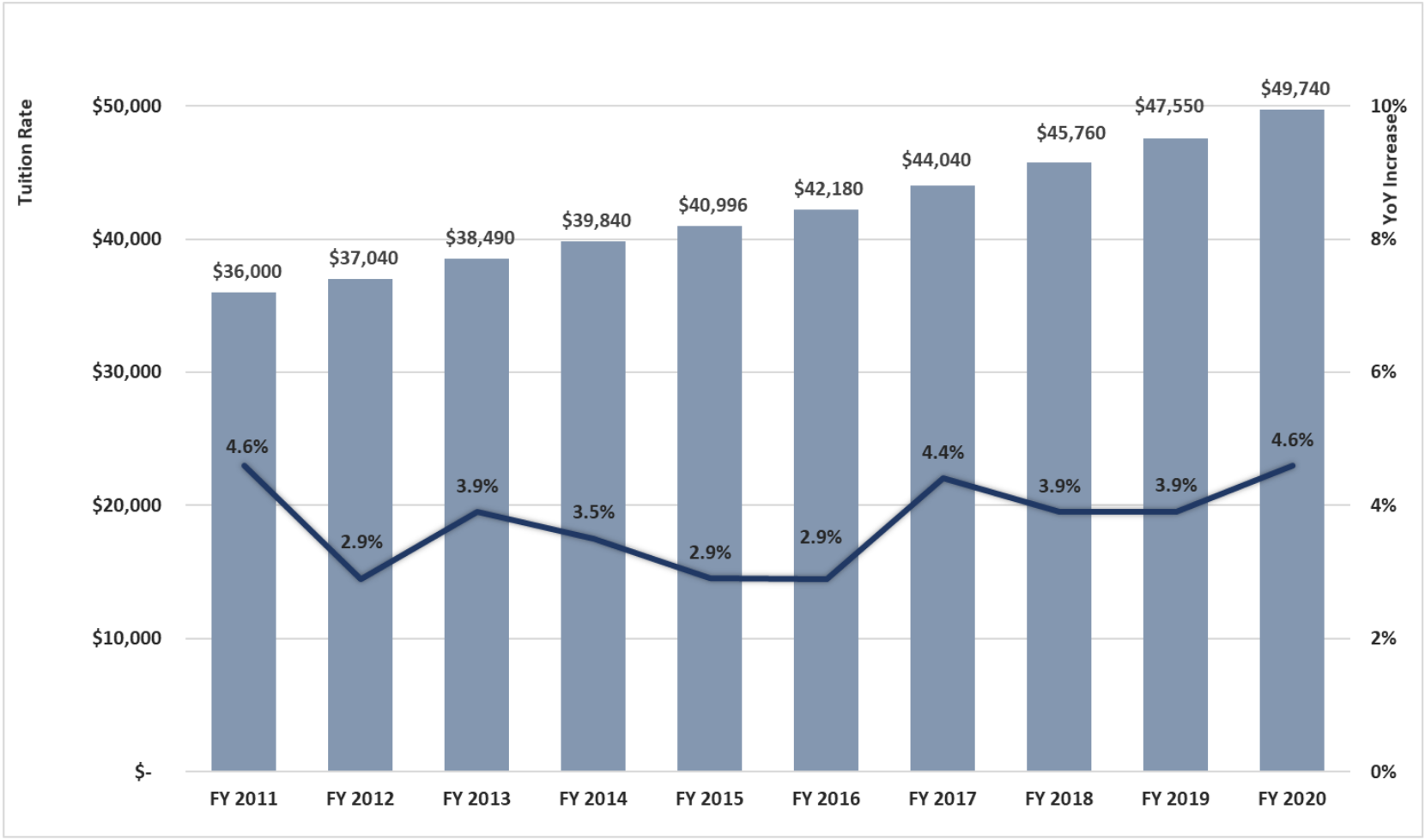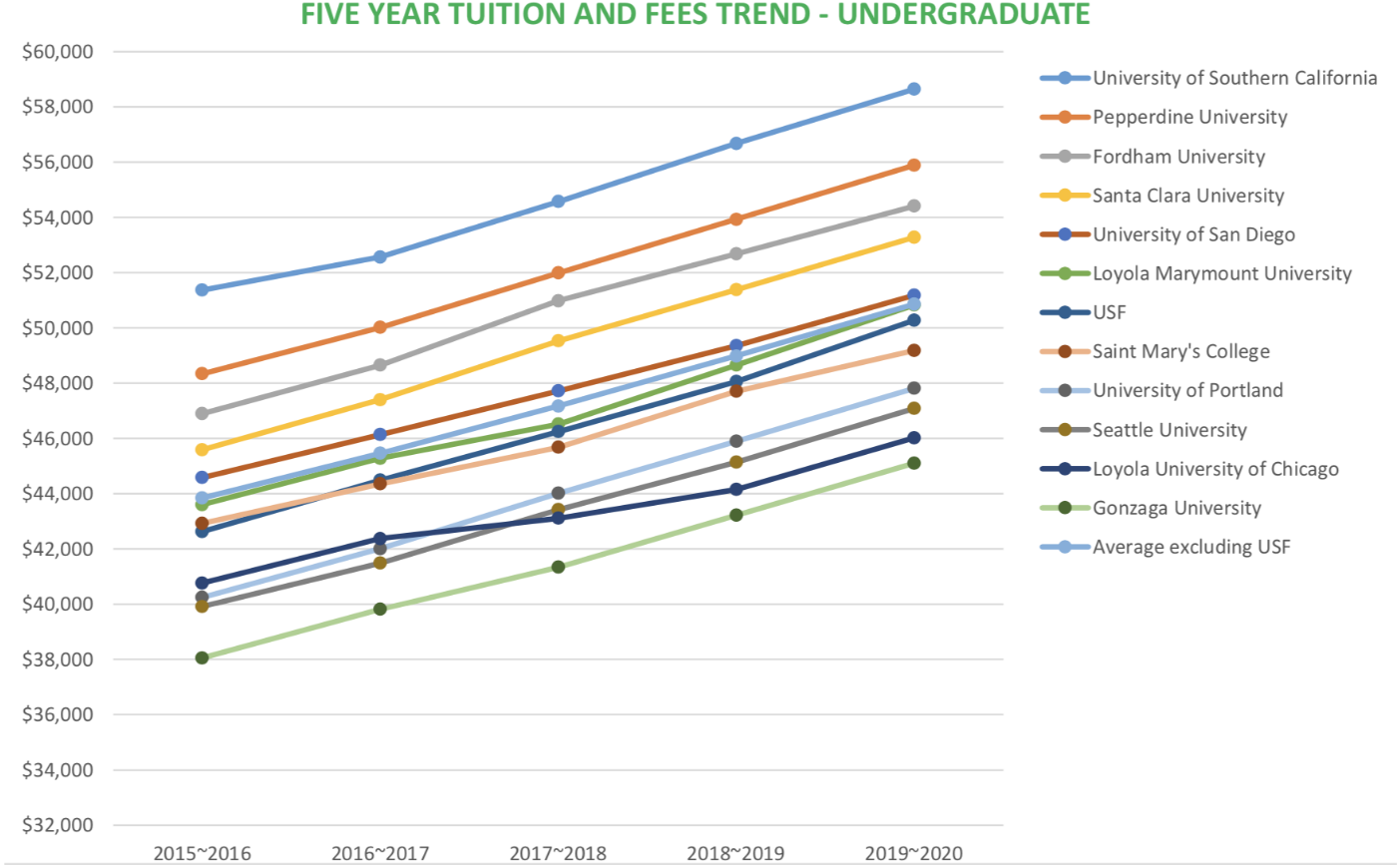ASUSF Tuition Town Hall
Why will tuition increase in academic year 2020-2021?
Compensation increases for staff.
- Approximately +$2.6 million in wages.
- Approximately +$1.0 million in benefits.
- On average, by about +3.0%.
Compensation increases for faculty.
- Approximately +$4.0 million in wages.
- Approximately +$1.5 million in benefits.
- On average, by about +4.8%.
Why will tuition increase in academic year 2020-2021?
Increased financial aid.
- By approximately +$4.0 million.
Various contractual / non-discretionary expenses will increase.
- Related to information technology: +$600,000
- Related to facilities contracts: +$540,000
- Related to library subscriptions / services: +$170,000
- Related to faculty development: +$150,000
- Other: +$200,000
Increased budget to cover unforeseen contingencies.
- Possibly up to +$1.0 million.
Recent history of tuition increases

How do our tuition increases compare?
| school | 2018-2019 | 2019-2020 | %change |
|---|---|---|---|
| University of Southern California | 55,320 | 57,256 | 3.5% |
| Pepperdine University | 53,680 | 55,640 | 3.7% |
| Santa Clara University | 51,081 | 52,998 | 3.8% |
| Fordham University | 51,285 | 52,980 | 3.3% |
| University of San Diego | 48,750 | 50,450 | 3.5% |
| USF | 47,550 | 49,740 | 4.6% |
| Loyola Marymount University | 47,470 | 49,550 | 4.4% |
| Saint Mary's University | 47,280 | 48,988 | 3.6% |
| University of Portland | 45,564 | 47,478 | 4.2% |
| Seattle University | 43,785 | 45,765 | 4.5% |
| Gonzaga University | 42,370 | 44,280 | 4.5% |
| Loyola University of Chicago | 42,720 | 44,130 | 3.3% |
| Average | 48,071 | 49,938 | 3.9% |
| Average Exclude USF | 48,119 | 49,956 | 3.8% |
How do our tuition levels compare?

Financial Aid: The American Way
- Partnership between government, institutions, student/family.
- Mostly “means” tested.
- Institutions given authority to administer government programs.
- A long steady decline in the “grant” partnership, with the federal and state governments doing proportionally less and institutions more.
Financial Aid at USF (especially as tuition goes up)
- Maximize each student’s eligibility for aid:
- Adjust student budget
- Identify additional Federal/State grant eligibility
- Additional work study
- Additional loan eligibility
- Adhere to government program guidelines.
- Help students achieve their educational goals.
Questions?
Jeff Hamrick, Vice Provost
jhamrick@usfca.edu
Michael Beseda, Vice Provost
mbeseda@usfca.edu
Tyrone Cannon, Interim Provost and Vice President
provost@usfca.edu
Paul Fitzgerald, S.J., President
president@usfca.edu